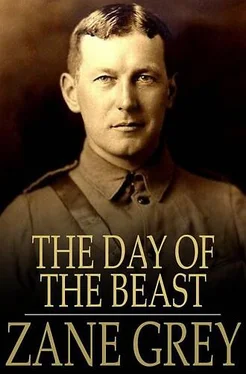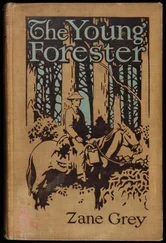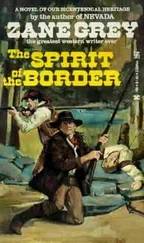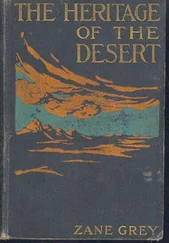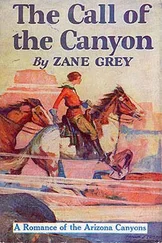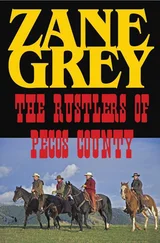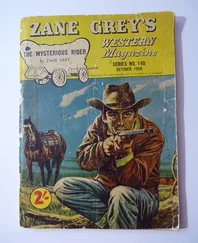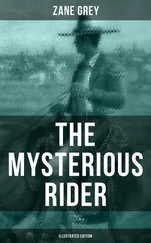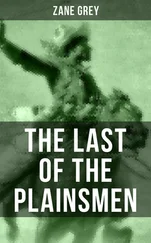Zane Grey - The Day of the Beast
Здесь есть возможность читать онлайн «Zane Grey - The Day of the Beast» весь текст электронной книги совершенно бесплатно (целиком полную версию без сокращений). В некоторых случаях можно слушать аудио, скачать через торрент в формате fb2 и присутствует краткое содержание. Жанр: Старинная литература. Описание произведения, (предисловие) а так же отзывы посетителей доступны на портале библиотеки ЛибКат.
- Название:The Day of the Beast
- Автор:
- Жанр:
- Год:неизвестен
- ISBN:нет данных
- Рейтинг книги:4 / 5. Голосов: 1
-
Избранное:Добавить в избранное
- Отзывы:
-
Ваша оценка:
- 80
- 1
- 2
- 3
- 4
- 5
The Day of the Beast: краткое содержание, описание и аннотация
Предлагаем к чтению аннотацию, описание, краткое содержание или предисловие (зависит от того, что написал сам автор книги «The Day of the Beast»). Если вы не нашли необходимую информацию о книге — напишите в комментариях, мы постараемся отыскать её.
The Day of the Beast — читать онлайн бесплатно полную книгу (весь текст) целиком
Ниже представлен текст книги, разбитый по страницам. Система сохранения места последней прочитанной страницы, позволяет с удобством читать онлайн бесплатно книгу «The Day of the Beast», без необходимости каждый раз заново искать на чём Вы остановились. Поставьте закладку, и сможете в любой момент перейти на страницу, на которой закончили чтение.
Интервал:
Закладка:
Lane exhausted his resources of memory and searched in his notes for a clipping he had torn from a magazine. He reread it, in the light of his crystallizing knowledge:
“Had I not been afraid of the scorn of my brother
officers and the scoffs of my men, I would have fled
to the rear,” confesses a Wisconsin officer, writing
of a battle.
“I see war as a horrible, grasping octopus with
hundreds of poisonous, death-dealing tentacle that
squeeze out the culture and refinement of a man,”
writes a veteran.
A regimental sergeant-major: “I considered myself
hardboiled, and acted the part with everybody,
including my wife. I scoffed at religion as unworthy
of a real man and a mark of the sissy and weakling.”
Before going over the top for the first time he tried
to pray, but had even forgotten the Lord's Prayer.
“If I get out of this, I will never be unhappy again,”
reflected one of the contestants under shell-fire in
the Argonne Forest. To-day he is “not afraid of dead
men any more and is not in the least afraid to die.”
“I went into the army a conscientious objector, a
radical, and a recluse.... I came out of it with the
knowledge of men and the philosophy of beauty,” says
another.
“My moral fiber has been coarsened. The war has
blunted my sensitiveness to human suffering. In 1914 I
wept tears of distress over a rabbit which I had shot.
I could go out now at the command of my government in
cold-blooded fashion and commit all the barbarisms of
twentieth-century legalized murder,” writes a Chicago
man.
A Denver man entered the war, lost himself and God,
and found manhood. “I played poker in the box-car
which carried me to the front and read the Testament
in the hospital train which took me to the rear,” he
tells us.
“To disclose it all would take the genius and the
understanding of a god. I learned to talk from the
side of my mouth and drink and curse with the rest of
our 'noble crusaders.' Authority infuriated me and the
first suspicion of an order made me sullen and
dangerous.... Each man in his crudeness and lewdness
nauseated me,” writes a service man.
“When our boy came back,” complains a mother, “we could hardly
recognize for our strong, impulsive, loving son whom we had
loaned to Uncle Sam this irritable, restless, nervous man
with defective hearing from shells exploding all about him, and
limbs aching and twitching from strain and exposure, and with
that inevitable companion of all returned oversea boys, the
coffin-nail, between his teeth.”
“In the army I found that hard drinkers and fast
livers and profane-tongued men often proved to be the
kindest-hearted, squarest friends one could ever
have,” one mother reports.
So then the war brought to the souls of soldiers an extremity of debasement and uplift, a transformation incomprehensible to the mind of man.
Upon men outside the service the war pressed its materialism. The spiritual progress of a thousand years seemed in a day to have been destroyed. Self-preservation was the first law of nature. And all the standards of life were abased. Following the terrible fever of patriotism and sacrifice and fear came the inevitable selfishness and greed and frenzy. The primitive in man stalked forth. The world became a place of strife.
What then, reflected Lane, could have been the effect of war upon women? The mothers of the race, of men! The creatures whom emotions governed! The beings who had the sex of tigresses! “The female of the species!” What had the war done to the generation of its period—to Helen, to Mel Iden, to Lorna, to Bessy Bell? Had it made them what men wanted?
At eight o'clock that night Lane kept his tryst with Bessy. The serene, mellow light of the moon shone down upon the garden. The shade appeared spotted with patches of moonlight; the summer breeze rustled the leaves; the insects murmured their night song. Romance and beauty still lived. No war could kill them. Bessy came gliding under the trees, white and graceful like a nymph, fearless, full of her dream, ripe to be made what a man would make of her.
Lane talked to Bessy of the war. Words came like magic to his lips. He told her of the thunder and fire and blood and heroism, of fight and agony and death. He told her of himself—of his service in the hours that tried his soul. Bessy passed from fascinated intensity to rapture and terror. She clung to Lane. She kissed him. She wept.
He told her how his ideal had been to fight for Helen, for Lorna, for her, and all American girls. And then he talked about what he had come home to—of the shock—the realization—the disappointment and grief. He spoke of his sister Lorna—how he had tried so hard to make her see, and had failed. He importuned Bessy to help him as only a girl could. And lastly, he brought the conversation back to her and told her bluntly what he thought of the vile verses, how she dragged her girlhood pride in the filth and made of herself a byword for vicious boys. He told her the truth of what real men thought and felt of women. Every man had a mother. No war, no unrest, no style, no fad, no let-down of morals could change the truth. From the dark ages women had climbed on the slow realization of freedom, honor, chastity. As the future of nations depended upon women, so did their salvation. Women could never again be barbarians. All this modern license was a parody of love. It must inevitably end in the degradation and unhappiness of those of the generation who persisted on that downward path. Hard indeed it would be to encounter the ridicule of girls and the indifference of boys. But only through the intelligence and courage of one could there ever be any hope for the many.
Lane sat there under the moonlit maples and talked until he was hoarse. He could not rouse a sense of shame in Bessy, because that had been atrophied, but as he closely watched her, he realized that his victory would come through the emotion he was able to arouse in her, and the ultimate appeal to the clear logic of her mind.
When the time came for him to go she stood before him in the clear moonlight.
“I've never been so excited, so scared and sick, so miserable and thoughtful in all my life before,” she said. “Daren, I know now what a soldier is. What you've seen—what you've done. Oh! it was grand!... And you're going to be my—my friend.... Daren, I thought it was great to be bad. I thought men liked a girl to be bad. The girls nicknamed me Angel Bell, but not because I was an angel, I'll tell the world.... Now I'm going to try to be the girl you want me to be.”
CHAPTER XIV.
The time came when Daren had to make a painful choice. His sister Lorna grew weary of his importunities and distrustful of his espionage. One night she became violent and flatly told him she would not stay in the house another day with him in it. Then she ran out, slamming the door behind her. Lane remained awake all night, in the hope that she would return. But she did not. And then he knew he must make a choice.
He made it. Lorna must not be driven from her home. Lane divided his money with his mother and packed his few effects. Mrs. Lane was distracted over the situation. She tried to convince Lane there was some kind of a law to keep a young girl home. She pleaded and begged him to remain. She dwelt on his ill health. But Lane was obdurate; and not the least of his hurts was the last one—a divination that in spite of his mother's distress there was a feeling of relief of which she was unconscious. He assured her that he would come to see her often during the afternoons and would care as best he could for his health. Then he left, saying he would send an expressman for the things he had packed.
Читать дальшеИнтервал:
Закладка:
Похожие книги на «The Day of the Beast»
Представляем Вашему вниманию похожие книги на «The Day of the Beast» списком для выбора. Мы отобрали схожую по названию и смыслу литературу в надежде предоставить читателям больше вариантов отыскать новые, интересные, ещё непрочитанные произведения.
Обсуждение, отзывы о книге «The Day of the Beast» и просто собственные мнения читателей. Оставьте ваши комментарии, напишите, что Вы думаете о произведении, его смысле или главных героях. Укажите что конкретно понравилось, а что нет, и почему Вы так считаете.
